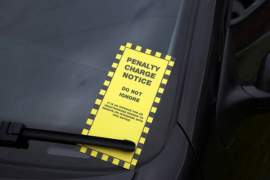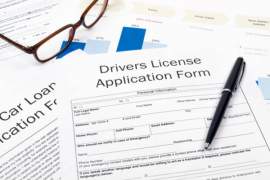
How to Buy A New Car

Car buying is a huge investment and one that will stay with the buyer for the long term. When buying a new car, you will not have the same concerns about the reliability of the vehicle, as you would with a used car, buy you will need to consider the purpose of the car, your willingness to hang onto the car in the future and if you can afford the financing option. You will need to expend adequate time and patience when buying a new car and by understanding all phases of the process, you will gain an important advantage not typically available to the average consumer.
What you will pay for the car
The Manufacturer’s Suggested Retail Price is by no means, what you will pay for the car. Even when buying a new car, you will have to negotiate with the dealer regarding fees and will have to make decisions on purchasing service contracts and extended warranties. An awareness of taxation laws in your state will also modify what you will pay for a car. Do not expect the dealer to give you the most honest estimate on the long term cost of the car. Only research with a number of excellent calculators to determine the costs of loans and leases will help you determine the viability of a financing agreement. Be prepared to negotiate on the MSRP and be aware of fees that are not mandatory. The savvy car buyer will be able to detect these not mandatory fees and have them dismissed before buying the new car.
Should I get the warranty?
There is no clear cut answer here. You will need to decide if the warranty offered to you is consistent with your needs and will not substantially add to the cost of the car. Determining if a warranty is in your interests will depend heavily on what costs the dealer will cover and how long the coverage will last.
Financing involved when buying a car
You will face the choice of leasing versus buying a car. You need to have all details of the leasing and loan offers in order to make an informed decision. How you finance your new car purchase depends on your needs and intent for the car. Leasing will carry heavy penalties for exceeding allotted mileage, making this arrangement not ideal for those with this particular need. Those that intend to walk away from the car in a short period of time, typically three years, will prefer a lease as buying the car with a loan would leave you on the hook for the loan after you have decided to move on.
You must be prepared for the financial obligations of buying a car. This includes ensuring you will be able to make timely payments if you choose to finance. Ensure you check the numbers on the financing agreement and that you are aware how interest will affect the principal you will owe to the dealer or salesperson. Remember that the absence of a down payment does not necessarily work out in your favor as this is a greater principal that you will be paying interest on.
Fees involved in buying a car
Destination charge – cost to deliver the car from the factory to the dealership, is set by the manufacturer and the buyer will end up paying it. Any other destination or delivery fee is unnecessary. This destination charge is a mandatory fee that cannot be avoided.
Title and registration fees – if you require a new license plate for the vehicle, the dealer will charge you this fee, set by the state, to acquire it for you. The fee is lower if you already have plates and want to transfer them to the new vehicle. You must register the vehicle.
Documentation fee – this fee is charged for processing the paperwork related to acquiring and buying the car. Many states cap this fee but other states where there are no limitations will have the he run into the hundreds of dollars. Consider this when buying a car in another state.
Sales tax – even cars are subject to sales tax. Buying the car in another state will subject you to your state’s sale tax once you register it in your state. The dealer may help facilitate registering the vehicle in your state.
Advertising fees – this fee can be challenged if it is not immediately disclosed to you. This is the charge that manufactures charge dealers for advertisement and some dealerships will try to pass it one to the consumer.
Guaranteed Auto Protection Insurance – if you are leasing, this fee covers the difference between your payments and the life of the lease if the car does not survive until the end of the lease.
Extended warranty/service contract – at your discretion, you may purchase additional protection for your vehicle. Do so only if you determine this is to your advantage and that the conditions are fair to you. Many drivers will never need their warranty but others have saved substantially because of it.
Just about any other fee that can be added to a vehicle can be disputed, challenged, or avoided. Other fees and coverage can be had cheaper elsewhere. All of these fees are the reason why it is important to read all of the terms related to buying or financing a car.
Why is a buyer’s guide important?
Any dealer that sells over six cars a year must provide a buyer’s guide that lists the terms and conditions of the purchase, the provisions of the warranty, and the rights of the purchaser as well as the obligations of the seller. Even when buying a new car, it is important to check the buyer’s guide for information on potential defects as well as the terms of your arrangement with the seller. It is important to note promises made in the buyer’s guide and that spoken promises are not enforceable.
How to buy a new car/buying a new car
NEXT: A Full Guide on How to Buy Used Cars




















